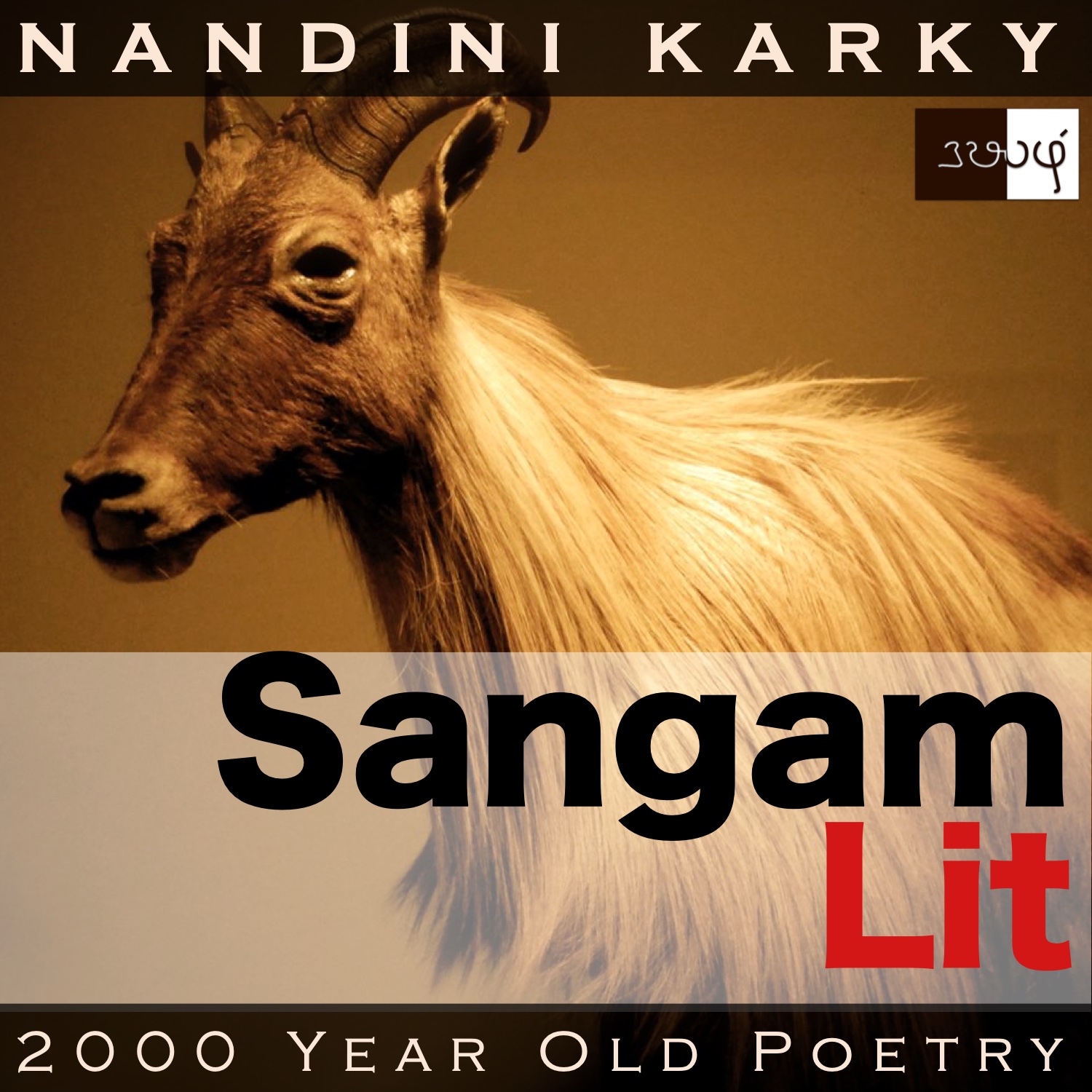Podcast: Play in new window | Download
Subscribe: Apple Podcasts | Spotify | Amazon Music | Android | iHeartRadio | TuneIn | RSS | More

In this episode, we perceive a nuanced approach to dissuading someone, as depicted in Sangam Literary work, Kurunthogai 363, penned by Selloor Kotranaar. Set in the drylands of ‘Paalai’, the verse speaks in the voice of the confidante to the man, when he tells her of his intention to part away from the lady to go in search of wealth.
கண்ணி மருப்பின் அண்ணல் நல் ஏறு,
செங் காற் பதவின் வார் குரல் கறிக்கும்
மடக் கண் மரையா நோக்கி, வெய்துற்று,
புல் அரை உகாஅய் வரி நிழல் வதியும்
இன்னா அருஞ் சுரம் இறத்தல்
இனிதோ-பெரும!-இன் துணைப் பிரிந்தே?
‘Is that such a pleasant thing to do?’ asks a voice here. The opening words ‘கண்ணி மருப்பின் அண்ணல் நல் ஏறு’ meaning ‘a worthy fine male having horns like a garland’ bring in an exquisite simile for a feature on an animal’s head. Also, these adjectives employed for the animal hints of a deeper significance. The question ‘male of what species’ is answered by the phrase ‘மடக் கண் மரையா’ meaning ‘the innocent-eyed tahr’, talking about the mountain goat, found in the grasslands around southern regions of the Western ghats in Tamilnadu and Kerala. A prominent tree in the drylands we have encountered often waves to us in ‘புல் அரை உகாஅய்’ meaning ‘the toothbrush tree with a gentle trunk’. Ending with the words ‘இன் துணைப் பிரிந்தே’ meaning ‘parting with your pleasant companion’, the verse echoes the theme of separation and beckons us to learn more.
What could be the reason behind wanting to know the pleasantness of a path? The context reveals that the man and lady were leading a married life when the man decided to part with the lady to go in search of wealth. Not having the strength to convey this to his wife and see her tears, the man takes this message to the lady’s confidante. Hearing this, the confidante says to him, “Having horns, akin to garlands, the respectable, fine male looks at the innocent-eyed female mountain goat, which is feeding on the long ears of the red-stemmed wild grass, and lets out a sigh. It then stays in the sparse shade of the soft-trunked ‘ukai’ tree, in the inaccessible, difficult drylands. To go there, parting away from your sweet companion, is it a sweet thing, O lord?”. With these words, the confidante conveys her displeasure at the man’s idea of parting with the lady.
Time to explore the nuances. The confidante starts by talking about the male of the mountain goat having garlands for horns and the way it’s looking and sighing at the sight of its female, feeding on lush red-stemmed ‘arukam’ grass, even as the male stands in the incomplete shade of the ‘ukai’ tree. She mentions this scene only as if to talk about the drylands the man plans to travel to, and asks him whether that is such a pleasurable place to be, when one has to part away from one’s sweet companion to go thither.
As hinted before, in the scene of the male goat looking at its female and sighing, the confidante places a metaphor for how the man too, would miss the lady’s presence, and think about her, as he walks those harsh drylands. She contrasts the joy and pleasure to be found in the vicinity of the lady against the heat and dread of the drylands, and wonders how the man could favour leaving all that sweetness and go towards bitterness. A gentle way of nudging the other to fully see the path they are about to set foot on!




Share your thoughts...